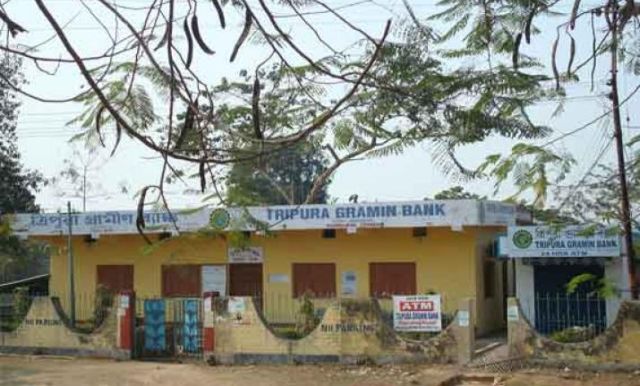
by Editor | May 25, 2021 | Entrepreneurship, Success Stories, World
 Cannes : Singer Akon is launching his own “AKoin” cryptocurrency in an effort to grow crypto-based apps in Africa to bring economic power back to the continent.
Cannes : Singer Akon is launching his own “AKoin” cryptocurrency in an effort to grow crypto-based apps in Africa to bring economic power back to the continent.
Akon, who is of Senegalese descent and has spent years running ‘Lighting Africa’ — a project aimed at bringing solar power to African nations — presented his plan for the digital cash currency at the the Cannes Lions International Festival of Creativity, reports billboard.com.
With the cryptocurrency in place, Akon Crypto City — a futuristic town being developed in 2,000 acres in Senegal — would come to life. The city, gifted to Akon by President of Senegal Macky Sall would run entirely on AKoin and be within five minutes of a new international airport.
“I think that blockchain and crypto could be the saviour for Africa in many ways because it brings the power back to the people and brings the security back into the currency system and also allows the people to utilise it in ways where they can advance themselves and not allow government to do those things that are keeping them down,” said Akon during a panel discussion.
Akon also mentioned running in the US presidential race in 2020 and his thoughts on rapper Kanye West as a candidate.
“I actually really want Kanye to run. I’m going to go after Trump and Kanye will get offended because he likes Trump and he is going to go after me. Then I am going to go after Kanye and then Trump’s going to get offended because he likes Kanye and he’s going to go after me,” he added.
—IANS

by Editor | May 25, 2021 | Corporate, Corporate Buzz, Entrepreneurship, News, Startup Basics

Bibek Debroy
Kolkata : India’s small farmers and street vendors are exhibiting far more entrepreneurship than the country’s corporate sector, Bibek Debroy, Chairman of the Prime Minister’s Economic Advisory Council, said here on Friday.
“Entrepreneurship cannot be taught but skills can be taught… let me tell you a small farmer exhibits far more entrepreneurship than the Indian corporate sector does. Let me remind you that the poor vendors on the streets of India are exhibiting far more entrepreneurship than the Indian corporate sector does,” he said while addressing the Sixth Convocation of IMI-Kolkata.
He said one cannot encourage entrepreneurship without encouraging failure.
“We all think of successes of entrepreneurship; 95 per cent of entrepreneurial attempts failed,” Debroy said.
Debroy, a member of NITI Aayog, also spoke of the need for the Indian education system
to facilitate or provide an enabling environment for entrepreneurship.
“…(there is a) huge question mark about whether Indian education system at all facilitates or provides enabling environment for entrepreneurship,” the economist said.
When Prime Minister talks about Start Up India and Stand Up India, it is not about the corporate sector but is about entrepreneurship, he said.
Referring to an IMF report released after India opened up the economy in 1991, he said it had suggested it would take 153 years for a country like India to halve the gap in per capita income that exists with the developed countries.
“The lesson of the last couple of decades has been that there is no need to wait for 153 years,” he said.
—IANS

by Editor | May 25, 2021 | Branding, Corporate, Corporate finance, Entrepreneurship, Markets, Startup Financing, Technology, Your Business Plan
 New Delhi : The Centre on Monday constituted a committee headed by the Economic Affairs Secretary to consider ways for further development of the financial technology (Fintech) sector in India, according to an official announcement.
New Delhi : The Centre on Monday constituted a committee headed by the Economic Affairs Secretary to consider ways for further development of the financial technology (Fintech) sector in India, according to an official announcement.
Among other things, the Steering Committee would look at the ways to make fintech related regulations more flexible and generate increased entrepreneurship in the sector, a Finance Ministry release said here. The Union Budget 2018-19, presented in Parliament last month, contains the proposal for forming such a committee.
“The government constitutes a Steering Committee on Fintech to consider various issues relating to development of the sector in India with a view to make regulations more flexible and generate enhanced entrepreneurship in an area where India has distinctive comparative strengths vis-a-vis other emerging economies,” it said.
“The Steering Committee will also focus on how Fintech can be leveraged to enhance financial inclusion of MSMEs (micro, small and medium enterprises)”.
FinTech is a rapidly evolving segment of the financial services sector where technology focused startups and other market entrants are disrupting how the financial services industry traditionally operates. Some known fintech companies operating in India are Paytm, Mobikwik, BankBazaar and PolicyBazaar.
Besides taking stock of the developments in the fintech sector globally, the committee’s terms of reference include analysing “the regulatory regime spread over different entities that has impacted the growth of Fintech in India”.
It is also required to consider “how Fintech can be leveraged in critical sectors of the economy, especially financing of MSMEs, affordable housing, delivery of e-services to vulnerable sections, provision of land record management and other government services, access and adoption of digital payments”.
The Committee is “to work with government agencies like UIDAI to explore creation and use of unique enterprise identification number,” the statement said.
“To consider international cooperation opportunities in fintech with countries like Singapore, UK, China, etc,” it added.
The other seven members of the committee are the respective Secretaries of Electronics and IT, Financial Services, MSMEs, the Chairperson Central Board of Excise and Customs (CBEC), Chief Executive Unique Identification Authority of India (UIDAI), Reserve Bank of India Deputy Governor and Economic Affairs Joint Secretary (Investment), who will act as committee convener, the Ministry said.
—IANS

by Editor | May 25, 2021 | Corporate, Corporate Governance, Entrepreneurship, Startup Financing
 Agartala : The Tripura Gramin Bank (TGB), one of India’s 56 regional rural banks (RRBs), posted net profit of Rs 35.98 crore up to September in current fiscal (2017-18). The bank has been notching profits successively for the past 17 years, the bank’s chairman said here on Thursday.
Agartala : The Tripura Gramin Bank (TGB), one of India’s 56 regional rural banks (RRBs), posted net profit of Rs 35.98 crore up to September in current fiscal (2017-18). The bank has been notching profits successively for the past 17 years, the bank’s chairman said here on Thursday.
According to the TGB chief, the bank is the only RRB in the northeastern region, comprising eight states, that has been making profit successively.
Supervised by United Bank of India (UBI), the TGB, which is celebrating its 42nd anniversary on Thursday grew its volume of business (up to September) to Rs 7,803 crore, which is 14.27 per cent more than the corresponding period of last financial year.
“The bank achieved a profit of Rs 35.98 crore up to September this year. This is 57.60 per cent higher than the corresponding period of last fiscal,” the TGB Chairman Mahendra Mohan Goswami told the media.
Accompanied by the bank’s general manager Dipankar Ambuly, the bank chief said: “The bank currently has 157 branches including 13 ultra small branches (USB) across Tripura. The TGB’s per branch business has gone up to Rs 54.19 crore in the current fiscal against Rs 47.42 crore in the previous period. Per employee business has also gone up to Rs 9.48 crore (up to September in 2017-18 fiscal) against Rs 8.80 crore in the previous period.”
Goswami said the bank’s Credit Deposit Ratio (CDR) currently stood at 36.79 per cent against the national banks’ (functioning in the state) CDR of 43 per cent.
According to the official, the TGB’s CRAR (Capital to Risk Assets Ratio) has gone down to 19.66 per cent against 20.76 per cent in 2016-17. However, this CRAR is much higher than the Reserve Bank of India’s stipulated ratio of 9 per cent.
The bank, which has over 70 per cent branches in rural areas, also has Aadhaar-enabled 225 micro ATMs and 190 business correspondents to hand out money and other banking services at the doorsteps of customers.
The TGB is the first RRB in India to have been accorded permission by the RBI to start treasury function of the Tripura government and open a currency chest.
The bank official said that to encourage entrepreneurship among the rural youth and avoid guarantor system in getting loans from the bank, since 2015-16 the Gramin Bank has started forming Joint Liability Group (JLG), and so far 4,084 such groups were formed involving 17,170 people.
The TGB, which has opened 383,123 bank accounts so far under the Pradhan Mantri Jan Dhan Yojana, is the first such bank in eastern India, has introduced several customer friendly services including Aadhaar Payment Bridge System.
—IANS

by Editor | May 25, 2021 | Business, Corporate, Corporate Governance, Entrepreneurship, Large Enterprise, Startup Basics, Your Business Plan
 New Delhi : The Union Cabinet Committee on Economic Affairs (CCEA) on Wednesday approved a new skill development scheme, covering the textile sector’s entire value chain excluding spinning and weaving in the organised sector, from 2017-18 to 2019-20 at an outlay of Rs 1,300 crore, an official statement said.
New Delhi : The Union Cabinet Committee on Economic Affairs (CCEA) on Wednesday approved a new skill development scheme, covering the textile sector’s entire value chain excluding spinning and weaving in the organised sector, from 2017-18 to 2019-20 at an outlay of Rs 1,300 crore, an official statement said.
The “Scheme for Capacity Building in Textile Sector (SCBTS)” will have National Skill Qualification Framework (NSQF) compliant training courses with funding norms as per the common norms notified by Ministry of Skill Development and Entrepreneurship, it said.
“The objectives of the scheme are to provide demand driven, placement oriented skilling programme to incentivise the efforts of the industry in creating jobs in the organised textile and related sectors…
“…to promote skilling and skill up-gradation in the traditional sectors through respective sectoral divisions/organisations of Ministry of Textiles; and to provide livelihood to all sections of the society across the country,” said the statement.
The skilling programmes would be implemented through textile industry/units, reputed training institutions relevant to textile sector, and institutions of Ministry of Textiles/state governments, it said, adding that 10 lakh people are expected to be skilled and certified in various segments of textile sector through the scheme, including about one lakh in traditional sectors.
—IANS

 Cannes : Singer Akon is launching his own “AKoin” cryptocurrency in an effort to grow crypto-based apps in Africa to bring economic power back to the continent.
Cannes : Singer Akon is launching his own “AKoin” cryptocurrency in an effort to grow crypto-based apps in Africa to bring economic power back to the continent.



